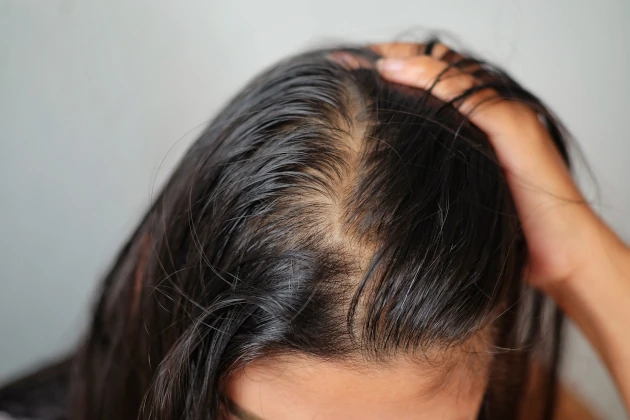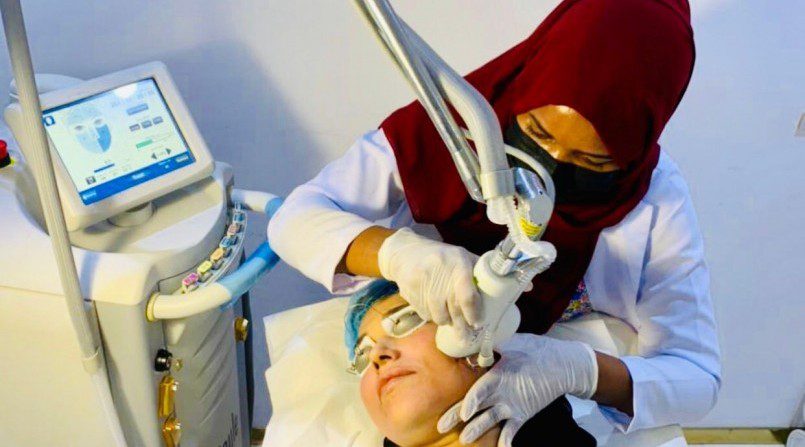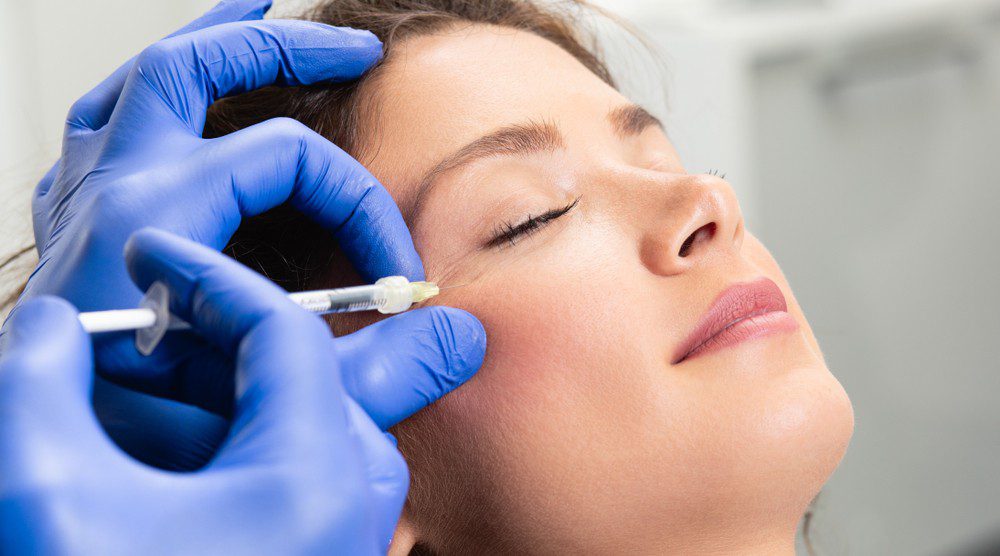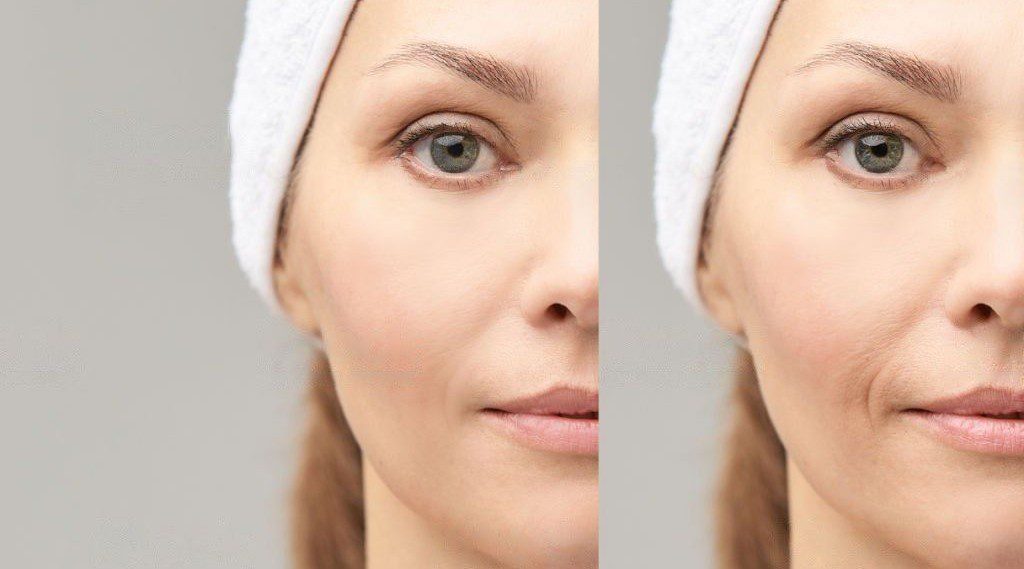Thinning Hair: Causes, Treatment, and More

What is Thinning Hair?
Thinning hair is a condition where hair gradually loses volume and density because more hairs are shed than replaced. While it is normal to lose around 50 to 100 hairs daily, thinning becomes noticeable when the scalp starts to shows, part lines widen, or overall hair appears less dense. This condition may affect both men and women and can be influenced by genetics, stress, nutritional deficiencies, hormonal changes, or underlying health issues. Early diagnosis is essential, as timely hair loss treatment can help maintain hair strength, thickness, and overall scalp health.
Common Causes of Thinning Hair
Thinning hair can develop from several different reasons, including:
- Genetics: Female or male pattern baldness is the most common cause. It usually runs in families and leads to gradual hair loss over time.
- Hormones: Changes during pregnancy, thyroid issues, menopause, or conditions like PCOS can disrupt the hair growth cycle and led to thinning.
- Lifestyle and stress: Major stress, crash diets, and lack of sleep can push hair follicles into a resting phase, resulting in excessive shedding.
- Nutritional deficiencies: Insufficient levels of vitamin D, iron, zinc, or protein can weaken hair and slow growth, making it more prone to shedding.
- Medical conditions: Autoimmune disorders, chronic diseases and scalp infections can interfere with hair follicles, leading to hair loss.
- Medications: Treatments such as antidepressants, chemotherapy, and blood thinners can affect hair growth and cause thinning.
- Hair styling habits: Frequent use of heat styling tools, tight hairstyles, or harsh chemical treatments might soften hair and cause thinning with time.
By understanding these causes, you can identify potential triggers and take steps to protect your hair, support growth, and maintain healthier, fuller locks.
Symptoms of Thinning Hair
Recognizing the signs of thinning hair early can help you take action to prevent further loss. Common symptoms include:
- Visible scalp: Hair appears less dense, and the scalp becomes visible.
- Receding hairline or widening part lines: Your part may look broader, or the hairline may gradually move backward.
- Thinning at the crown or temples: Hair can appear less dense in particular areas, often at the top or sides of the scalp.
- Scalp irritation: Burning, itching, or flaking can sometimes accompany thinning hair.
- Overall hair volume loss: Hair feels lighter, less full, and may lie flat.
- Excessive shedding: Experiencing excessive hair loss in excess of normal daily shedding on brushes, pillows, or in the shower, including sudden and unexplained shedding in clumps.
- Patchy bald spots: Small areas of noticeable hair loss may develop on the scalp.
- Changes in hair texture: Hair may become weaker, finer, or more fragile over time.
Hair Thinning Treatment Options
Treatment for thinning hair depends on the underlying cause, but there are several effective treatments available. Choosing the right hair treatment for thinning hair can help restore density, strengthen hair, and prevent further loss.
Regenerative and Advanced Therapies
- Stem cell injections: A cutting-edge treatment that uses growth factors to regenerate hair follicles, reduce hair loss, and restore natural thickness and volume.
- MCT (MetaCell Technology) Advance Plasma and Exosomes: Advanced treatments that enhance follicle activity and hair regrowth.
- Liposomal treatments: 5th Generation Hair Booster uses advanced liposomal-exosome technology to stimulate follicle growth, restore scalp health, and prevent hair loss with faster, superior results.
- Exosomes: Stem cell–derived particles that stimulate and nourish hair follicles, promoting growth, improving hair quality, and helping reduce hair loss.
- PRP (Platelet-Rich Plasma) therapy: Uses your own blood to concentrate growth factors and platelets, which will stimulate the hair follicles and promote new growth.
- Laser therapy: Stimulates circulation and strengthens follicles, including advanced options such as Fotona laser.
- IV drips: Nutrient-rich drips deliver vitamins and minerals directly into the bloodstream to support overall hair health.
- Mesotherapy: Injecting vitamins, minerals, and amino acids microinjected directly into the scalp to nourish hair follicles.
Hair Transplant Surgery
For advanced or permanent hair loss, hair transplant surgery can restore density using healthy donor follicles. This option is usually considered when other hair thinning treatments provide limited results.
Lifestyle and Scalp Care
- Maintain a protein-rich, balanced diet to support hair growth.
- Manage stress and prioritize quality sleep to minimize shedding.
- Avoid harsh styling habits, tight hairstyles, and chemical treatments that can damage hair.
Medical Treatments
- Minoxidil (topical): Increases blood flow to the scalp and stimulates new hair growth.
- Finasteride (oral, for men): Decreases DHT, the hormone responsible for genetic hair loss.
- Spironolactone (for women): Blocks the effects of androgens on hair follicles.
- Supplements: Correcting deficiencies in vitamin D, B12, iron, and zinc can support healthy hair growth.
At SKIN111, we have an extensive variety of hair thinning treatments and also offer free consultations with very experienced hair restoration and loss specialists to help you choose the most effective approach for your needs.
Can Thinning Hair Be Reversed?
Thinning hair is a common concern and while it cannot always be fully reversed especially when caused by genetics, early intervention can make a significant difference. Hair treatment for thinning hair is most effective when started at the first signs of hair loss helping to slow progression and in some cases restore density. Effective hair thinning treatment includes prescription medications, in-clinic procedures such as PRP, Exosomes therapy and customized care plans designed by hair specialists to target the underlying causes.
When to See a Specialist for Thinning Hair?
You should see a specialist if you notice sudden hair shedding, bald patches, scalp irritation, or gradual thinning. Early evaluation allows for more effective hair thinning treatment and helps identify the underlying causes before hair loss progresses further. Prompt action can make a real difference in results.
Conclusion
Thinning hair is a common concern for both men and women, but it doesn’t have to be permanent. With the latest medical and regenerative therapies, many people notice significant improvement. The key is to act early, as consulting a specialist allows you to create a personalized hair thinning treatment plan and start it promptly, giving your hair the best chance to regain strength and volume.
Most Popular:
-

Sciton HALO vs Sciton BBL
Read More »September 20, 2022 -

What is profhilo, and how is it different from fillers?
Read More »September 20, 2022 -

Body contour solutions from SKIN111
Read More »September 20, 2022 -

Does IV GLUTATHIONE therapy work
Read More »September 20, 2022 -

How can an IV drip help you boost your energy
Read More »September 20, 2022